Compiled by the CAIC Research Committee.
August 13, 2013
An article in a Pakistani newspaper, asks the question of whether force feeding is ‘torture’ or humane treatment. While a senior medical advisor at Guantanamo insists that it is done to save lives, he acknowledges that quite a few of the hunger strikers have been taken to the hospital to be resuscitated. http://www.nation.com.pk/pakistan-news-newspaper-daily-english-online/international/13-Aug-2013/force-fed-torture-or-humane-treatment-at-guantanamo
August 12, 2013
In Britain, a former MI6 officer is on hunger strike in support of Guantanamo Bay prisoner Shaker Aamer. He said he is motivated by shame at his former employer which he said supported policies including torture and detention without trial. http://www.independent.co.uk/news/uk/crime/former-mi6-officer-on-hunger-strike-over-guantanamo-inmate-8758213.html
August 8, 2013
The mediation team working on behalf of the CA hunger strikers was able to speak to representatives of the prisoners at Pelican Bay. They report that, despite increasingly abusive treatment, the prisoners remain steadfast in continuing their protest, and stated clearly that “this peaceful protest is not about them—it is about making real, fundamental changes to an incredibly unjust system.” The representatives also said that they are incredibly inspired by all the support they’ve received. http://prisonerhungerstrikesolidarity.wordpress.com/2013/08/08/mediators-talk-with-prisoners-as-hunger-strike-reaches-one-month-mark-situation-remain-critical-negotiations-crucial/
Pat Nolan, the conservative evangelist and former prisoner who is now Vice President of Prison Fellowship, the nation’s largest prison reform group, says, “Putting someone in solitary is a fate worse than death … nothing, other than murdering a guard, can possibly justify putting them in these conditions that drive them mad.” http://solitarywatch.com/2013/08/08/draft-pat-nolans-evangelical-prison-reform/
August 6, 2013
Jeffrey Beard, the head of California’s Dept. of Corrections and Rehabilitation, writes in an Op-Ed, that the hunger strike is a gang power play by convicted murderers who are putting lives at risk to advance their own agenda of violence. He also claims that many of those participating in the hunger strike are under extreme pressure to do so from violent prison gangs. Solitary Watch raises some questions about his statements. http://www.latimes.com/news/opinion/commentary/la-oe-beard-prison-hunger-strike-20130806,0,636927.story
http://solitarywatch.com/2013/08/06/california-hunger-strike-approaches-one-month/
August 3, 2013
Advocates for prisoners on hunger strike to protest California’s solitary confinement program met with the state prisons chief as they pushed for an end to practices they say are inhumane. A corrections spokesperson said the agency will review the group’s policy suggestions. http://www.thereporter.com/ci_23789389/california-prisons-chief-meets-inmate-advocates?source=most_viewed&utm_content=buffer32534&utm_source=buffer&utm_medium=twitter&utm_campaign=Buffer
August 2, 2013
The California Assembly is considering a bill which would impose strict limits on the solitary confinement of youth. The bill was already passed the Senate. http://legiscan.com/CA/bill/SB61/2013
July 31, 2013
The group of 9 young, undocumented immigrants originally brought to this country as children have been jailed by Homeland Security after they walked from the Mexican side of the border in Nogales to the U.S. immigration offices, where they sought to re-enter the U.S. legally. Currently 6 of them are in solitary confinement as punishment for the hunger strike they undertook in protest against the denial of telephone access to their lawyers and family. http://readersupportednews.org/opinion2/277-75/18675-focus-us-detains-undocumented-aliens-in-solitary-confinement
July 23, 2013
The ACLU of Colorado issues Out of Sight, Out of Mind: Colorado’s continued warehousing of mentally ill prisoners in solitary confinement, a report detailing the findings of a study which showed that the percentage of Colorado prisoners in solitary confinement who are classified as mentally ill has risen. Many of the seriously mentally ill prisoners had been held in isolation for longer than one year, and some for longer than four years. They recommend: barring mentally ill prisoners from extended periods of isolation; involvement of mental health staff in disciplinary decisions; extended out of cell time; and eliminating the shortage of mental health staff. http://aclu-co.org/sites/default/files/imce/ACLU-CO%20Report%20on%20Solitary%20Confinement.pdf

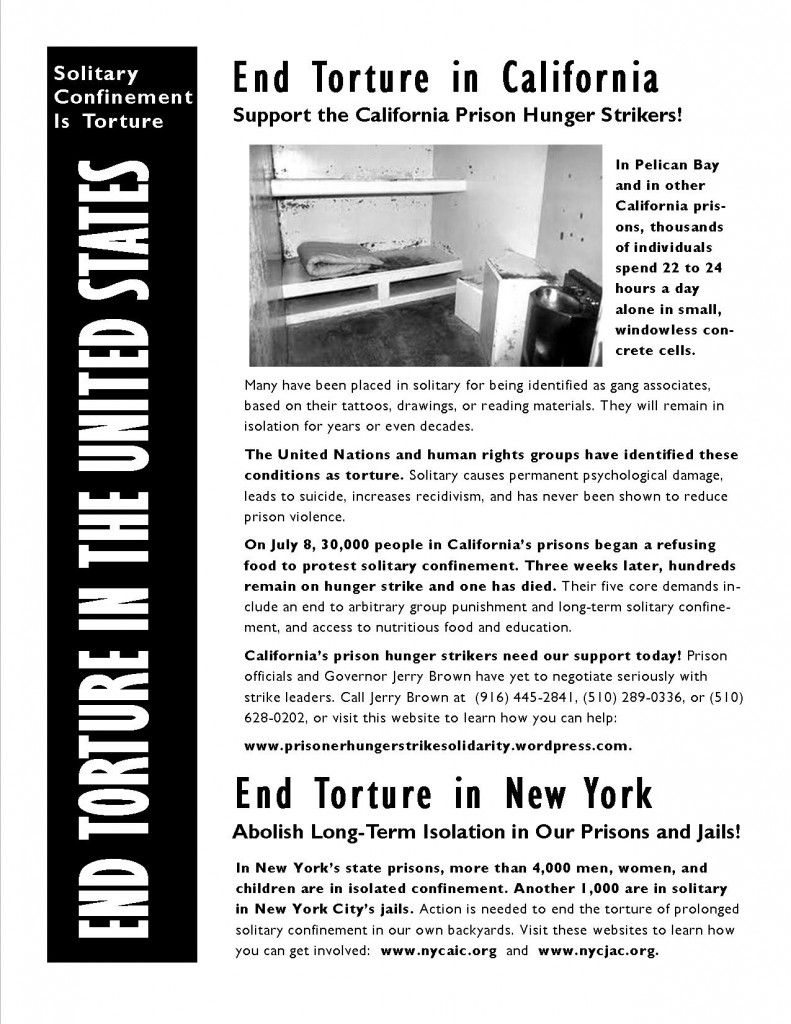
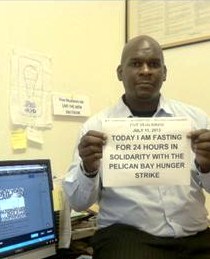
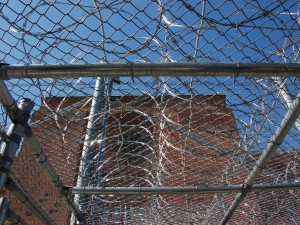
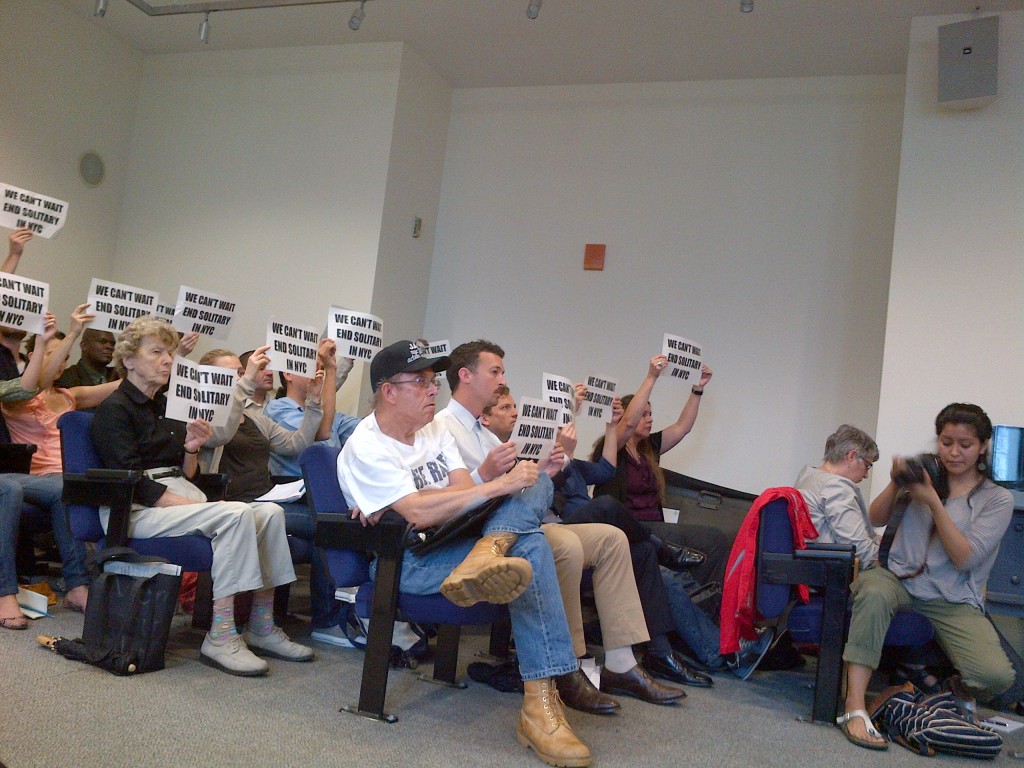
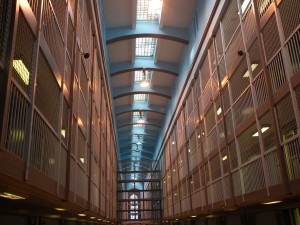
Follow the #HALTsolitary Campaign